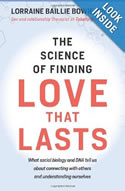Eva’s frontal cortex is far more active than Adam’s, resulting in qualities related to living a longer life than Adam. Eva’s enhanced level of self-control makes her less likely than Adam to become addicted to drugs or alcohol, spend time in jail or become a psychopath. On the other hand, Eva is more likely to take better care of her health and visit her doctor more frequently than the typical Adam, who prefers to avoid the doctor.
Dr. Amen, who writes about female brain function, says women have “appropriate worry,” causing them to avoid high risk behaviors. He believes that appropriate worry is responsible for Eva’s longevity edge over Adam. Although worry about negative consequences keeps women alive longer than men, it does come with a cost. Women are twice as likely to suffer from anxiety and depression as are men. According to the Mayo Clinic, twenty percent of all women will develop depression sometime in their lifetime.
In contrast to Eva, Adam is a feel good, be happy, don’t worry kind of guy. Due to less activity in his frontal cortex he has less impulse control and appropriate worry than Eva. Consequently he is more likely than Eva to die from accidents and preventable illnesses.
Adam may be happier than Eva because he’s engaging in high risk behaviors, or because he doesn’t have the same ability to worry, but an additional factor is more important than the two of these put together. Adam produces a whopping 52 percent more serotonin than Eva. You’ve heard about serotonin as it relates to antidepressants, specifically how many of the popular antidepressants operate to make more serotonin available in our bodies. For men, a lower level of appropriate worry and a higher level of serotonin results in a “don’t worry, be happy attitude.
Read more at Surprising Differences Between the Male and Female Brain | Yahoo! Health.





 Paula Broadwell
Paula Broadwell















